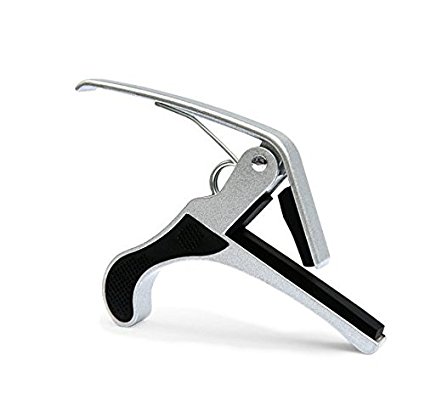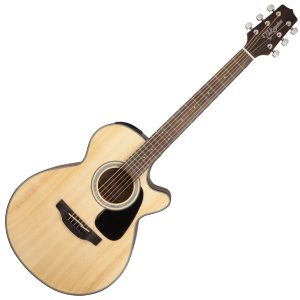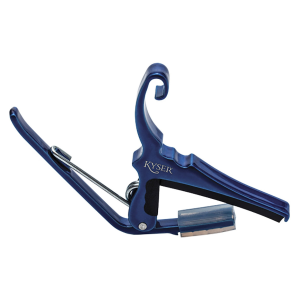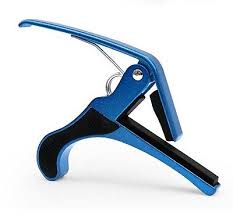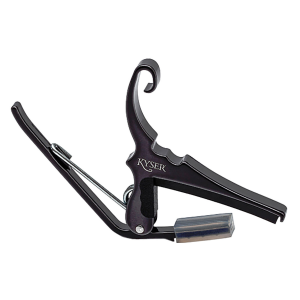Description
The Trax Silver Guitar Capo is a quick release capo for acoustic or electric guitar. Squeezing the 2 levers together releases grip on the guitar neck, allowing easy removal or replacement and quick position change.
Trax Blue Guitar Capo features:
- Rubberized grip surfaces allow firm, even pressure without causing damage
- Squeeze sprung mechanism for quick release
- Silver in Colour
How to Use a Trax Silver Guitar Capo on Guitar:
A capo is a device that clamps down across the guitar’s fingerboard at a particular fret. Capos shorten the length of all the strings at the same time, creating, in effect, a new nut. All the “open” strings now play in higher pitches than they do without the capo.
How much higher? A half step for each fret. If you place the capo at the third fret, for example, the open E strings become Gs (three half steps higher in pitch than E). All the strings become correspondingly higher in pitch as well — B becomes D; G becomes Bb; D becomes F; and A becomes C. You can’t play anything below the capo — only above it on the neck.
Capos can operate by means of elastic, springs, or even threaded bolts. To correctly set the capo, place it just before the fret (toward the tuning pegs), not directly over the metal fret wire.
Say that you know how to play a particular song in the key of C and only in the key of C. But you want to accompany a singer (maybe yourself) whose vocal range is better suited for singing that particular song in the key of D.
No problem. Put your capo at the second fret and simply play the song in C as you normally do. The capo causes all the strings to sound two half steps higher than normal, and the music sounds in D! In fact, you can move the capo to any fret, sliding it up and down the neck, until you find the fret (key) that’s perfect for your vocal range.
Of course, if the notes and chords in the song you’re playing have no open strings, you can simply change positions on the neck (using movable chords) to find the best key for singing. Use a capo only if the song requires the use of open strings.
Note* Sometimes, engaging or disengaging a capo causes the strings to go out of tune. Remember to check your tuning and make any necessary adjustments whenever you attach or remove the capo.
.

